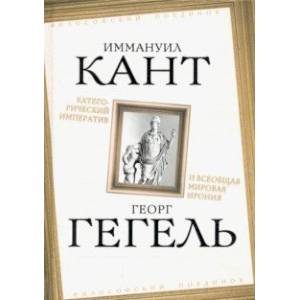Categorical imperative and universal world irony
Please sign in so that we can notify you about a reply
Immanuel Kant (1724 - 1804) had a huge impact on the development of classical philosophy. In his works, he raised the most important issues of the universe and human society, introduced many fundamental concepts, including the "categorical imperative". According to Kant, the categorical imperative is the main rules that should be guided by both individuals and society as a whole, and no external influences, the so -called "objective reasons" should interfere with the implementation of these rules.
George Hegel (1770 - 1831) is one of the creators of German classical philosophy. The most important concept in Hegel"s philosophical system is the laws of dialectics, according to which everything in the world and society is constantly moving from one forms to others, and what seems eternal today is scattered to dust tomorrow. This is the "Universal World Irony", by the definition of Hegel.
The book contains the most significant works of Kant and Hegel dedicated to this topic
George Hegel (1770 - 1831) is one of the creators of German classical philosophy. The most important concept in Hegel"s philosophical system is the laws of dialectics, according to which everything in the world and society is constantly moving from one forms to others, and what seems eternal today is scattered to dust tomorrow. This is the "Universal World Irony", by the definition of Hegel.
The book contains the most significant works of Kant and Hegel dedicated to this topic
Author:
Author:Kant Immanuel
Cover:
Cover:Hard
Category:
- Category:Politics & Social Science
- Category:Phylosophy
- Category:Reference books
Series:
Series: Philosophical fight
ISBN:
ISBN:978-5-907255-65-4
No reviews found
